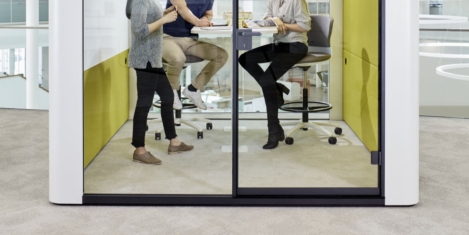September 7, 2023
AI is giving business leaders the heebie-jeebies, new poll suggests
 An overwhelming majority of business leaders (94 percent) admit to some form of ‘tech anxiety’ when it comes to AI and other technology, according to a new survey from Kin + Carta. This anxiety is on the rise as the pace of digital and technological change accelerates, and is prompting top executives to invest more in digital transformation, according to the survey. The report defines tech anxiety as the feeling senior leaders have as a result of the rapid pace of advancements in technology that are causing concern when it comes to how their business operates. While the top source of that anxiety is cyber security (cited by 24 percent of respondents), close behind, and rounding out the top three, are concerns over AI and machine learning (19 percent), and anxieties about sustainability strategy and tracking (17 percent). (more…)
An overwhelming majority of business leaders (94 percent) admit to some form of ‘tech anxiety’ when it comes to AI and other technology, according to a new survey from Kin + Carta. This anxiety is on the rise as the pace of digital and technological change accelerates, and is prompting top executives to invest more in digital transformation, according to the survey. The report defines tech anxiety as the feeling senior leaders have as a result of the rapid pace of advancements in technology that are causing concern when it comes to how their business operates. While the top source of that anxiety is cyber security (cited by 24 percent of respondents), close behind, and rounding out the top three, are concerns over AI and machine learning (19 percent), and anxieties about sustainability strategy and tracking (17 percent). (more…)




















 Zoom has opened a new London ‘Engagement Hub’ which the firm claims will spearhead the shift from traditional office spaces to ‘experiential working hubs’. With the demand for hybrid working and remote capabilities giving rise to unconventional ways of operating, Zoom says it has designed its new office to support the changing nature of the employee experience, marking a new era of modern work.
Zoom has opened a new London ‘Engagement Hub’ which the firm claims will spearhead the shift from traditional office spaces to ‘experiential working hubs’. With the demand for hybrid working and remote capabilities giving rise to unconventional ways of operating, Zoom says it has designed its new office to support the changing nature of the employee experience, marking a new era of modern work. 














September 5, 2023
From ego to eco – a universal approach to workplace transformation
by Eugenia Anastassiou • Comment, Environment, Everything Omni
(more…)